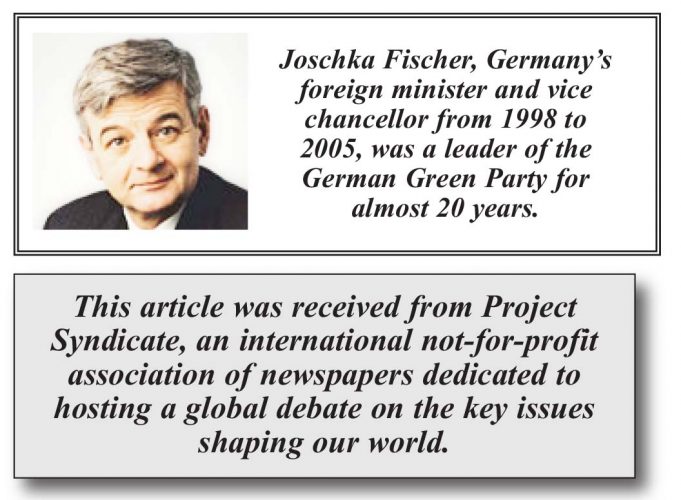BERLIN – Russia’s senseless war in Ukraine has been raging for nearly a year and a half, and the basic criminal nature of the enterprise has not changed. A major nuclear power wants to deny its neighbor – a “brother nation” – a previously recognized right to exist. Russian President Vladimir Putin has chosen a war of conquest as his means. If he achieves his desired end, Ukraine will be incorporated into Russia, disappearing as an independent sovereign state.
But with every passing week, there is more evidence to suggest that his calculations have backfired. Far from delivering a quick victory, Putin’s “special military operation” has become a bloody slog that Russia could well lose. While it has certainly imposed many sacrifices on Ukraine, it has also created costs for ordinary Russians.
The seriousness of the mess that the Kremlin has created for itself became fully apparent in late June, when Yevgeny Prigozhin and his Wagner Group mercenaries challenged the top leadership directly. Prigozhin’s attempted coup played out over many hours with the whole world watching, and his Wagner forces even captured the Russian city of Rostov-on-Don, the headquarters of the Russian army’s southern military district. From there, his forces – including tanks – marched on Moscow, coming within 200 kilometers (124 miles).
Astonished observers around the world were left with many questions. Where were Russia’s security and secret services? How could Putin’s regime permit such a brazen challenge to its authority?
In a nationwide address delivered just as Prigozhin’s march began, Putin recalled the chaos of 1917 and warned of civil war. He then was neither seen nor heard from. Was he still in the Kremlin during those dramatic hours, or had he fled to St. Petersburg, as some have speculated? Needless to say, a strongman dictator who turns tail and runs is no longer strong, especially when he does so in the face of a challenge from within his own circle.
And what are we to make of the Kremlin’s claim that the standoff was resolved through mediation by Belarusian President Aleksandr Lukashenko, a junior vassal whom Putin sometimes uses but seldom takes seriously? Even if this were true, it would raise serious doubts about Putin’s power.
Institutionally, the Russian Federation has now been exposed as frighteningly weak. The Wagner Group was able to rattle every precinct of the state, because the state rests entirely on the will of one man whose authority was being challenged with scarcely a response. Were the despot to fall, it follows that everything else would fall with him. In the critical hours of Prigozhin’s insurrection, Putin’s Russia turned out to be what its critics had long claimed: a mafia state lacking robust institutions – but, unfortunately, one with the world’s largest nuclear arsenal.
It was a moment of truth, and Putin’s allusion to 1917 and the fall of the czar was actually quite apt. The current episode is indeed reminiscent of that year, which brought not one but two revolutions – first in February and then in October.
Prigozhin’s attempted coup was closely linked to the failed war of conquest in Ukraine. The prospect of a calamitous Russian defeat is growing, further calling into question the wisdom, competence, and strength of the strongman. With a military defeat looming, Putin must think carefully about his future. How much power does he have left? Is it enough to end the war through a painful compromise, or would that show weakness and trigger another challenge to his rule?
In any case, Prigozhin’s march on Moscow means that the war has entered a dangerous new phase. The endgame is approaching, and whatever happens on the battlefield will determine the future of Russian domestic politics. We now know that ending the war will be riskier and more difficult than previously assumed, because any perception of defeat will be considered unacceptable to certain elements of the Russian power apparatus. Prigozhin was just one part of that structure.
The closer we get to the endgame, the greater the risk that the Kremlin will resort to some irrational act like ordering the use of a nuclear weapon. Prigozhin’s revolt offers a preview of the chaos that awaits. Almost anything is conceivable now, from the disintegration of the Russian Federation to the rise of another ultra-nationalist regime with neo-czarist dreams of imperial restoration.
Like Putin’s Russia, this one would remain locked in the past, far removed from any prospect of social, political, or economic modernization. It would pose a permanent threat to Europe’s eastern flank, and to global stability more broadly. We will have to arm ourselves against it, and our grandchildren and great-grandchildren will most likely have to do the same.
Copyright: Project Syndicate, 2023.







